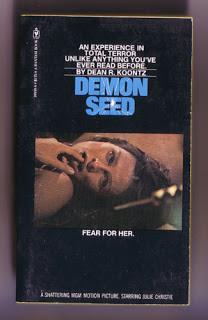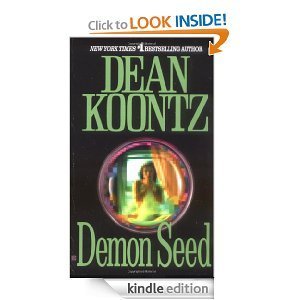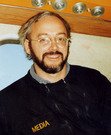date newest »
newest »
 newest »
newest »
message 1:
by
Bethica
(new)
Jul 13, 2012 08:43PM
 Believe it or not, I just recently purchased my first digital camera in almost 10 years. I bought one a long time ago when it was "new" and "trendy" and took massive amounts of beautiful pictures of my kids. Regretfully, we didn't have a DVD burner and when the hard drive crashed, we lost all of our kids baby and toddler pictures. We have stood by our decision to give up the blasted things and only use disposable cameras, even on our trip across country to southern Texas last year. Our kids are turning into teenagers now, and have just now convinced us to buy a digital camera prior to our trip to Yellowstone in 2 weeks. I'm still not entirely sure that the decision was the best choice for us, but the children of the digital age that know better than all of us "old folks" have assured us that with sites like shutterfly and amazon, all of our digital information will be saved for us. I did buy two kindles for myself and my daughter last year to have something to bring us together and be able to read the same book at the same time and open a line of communication with my 14 year old. My kindle has since bit the dust, but the digital content continues on. I'm grasping that little string of hope that perhapse moving on is the right choice. I still hold to the belief that Facebook is an open doorway to alot of things and realities that I'm not ready for my kids to deal with. Who knows? Give me another couple years and maybe that will change too. You never know where this world will carry you these days.
Believe it or not, I just recently purchased my first digital camera in almost 10 years. I bought one a long time ago when it was "new" and "trendy" and took massive amounts of beautiful pictures of my kids. Regretfully, we didn't have a DVD burner and when the hard drive crashed, we lost all of our kids baby and toddler pictures. We have stood by our decision to give up the blasted things and only use disposable cameras, even on our trip across country to southern Texas last year. Our kids are turning into teenagers now, and have just now convinced us to buy a digital camera prior to our trip to Yellowstone in 2 weeks. I'm still not entirely sure that the decision was the best choice for us, but the children of the digital age that know better than all of us "old folks" have assured us that with sites like shutterfly and amazon, all of our digital information will be saved for us. I did buy two kindles for myself and my daughter last year to have something to bring us together and be able to read the same book at the same time and open a line of communication with my 14 year old. My kindle has since bit the dust, but the digital content continues on. I'm grasping that little string of hope that perhapse moving on is the right choice. I still hold to the belief that Facebook is an open doorway to alot of things and realities that I'm not ready for my kids to deal with. Who knows? Give me another couple years and maybe that will change too. You never know where this world will carry you these days.
reply
|
flag
 Thank you for the library program. I'm sure some of the members of the writers group will sign up for the class in Ashe County. At Black Bear Books in the Boone Mall, I came upon a biography of an author I've enjoyed. I leafed through, told myself, "I can likely find all this information on the internet," and bought the book anyway. I realized even then that I was buying the book as much as an artifact of my regard for that author as for the information package.
Thank you for the library program. I'm sure some of the members of the writers group will sign up for the class in Ashe County. At Black Bear Books in the Boone Mall, I came upon a biography of an author I've enjoyed. I leafed through, told myself, "I can likely find all this information on the internet," and bought the book anyway. I realized even then that I was buying the book as much as an artifact of my regard for that author as for the information package.
 I still say there is a place for digital and paper. After staring in a computer all day, and then T.V. at night, I cherish the pages of a book as a relief to my overworked eyes.
I still say there is a place for digital and paper. After staring in a computer all day, and then T.V. at night, I cherish the pages of a book as a relief to my overworked eyes.At a signing recently, I assumed a young adult that I spoke to would prefer to buy the ebook version of my book, when she promptly put me in my place saying that she much preferred reading a paper book and didn't even own an ereader. So, though I think Scott may be right about the future several years down the road (who really knows what will happen,) for now writing content will continue to be digested in numerous vessels, including audio and podio versions.
I also realize that ebooks are a boon for the indie authors for the same reasons Scott mentions above, so anyone willing to write anything can get published, and inexpensively. Unfortunately, not all indie authors offer the excellent quality of a Scott Nicholson book, and with fewer publishers overseeing quality control, readers waste money buying bad stuff to get to the good books.





